Life As Process and other Issues in the Philosophy of Biology
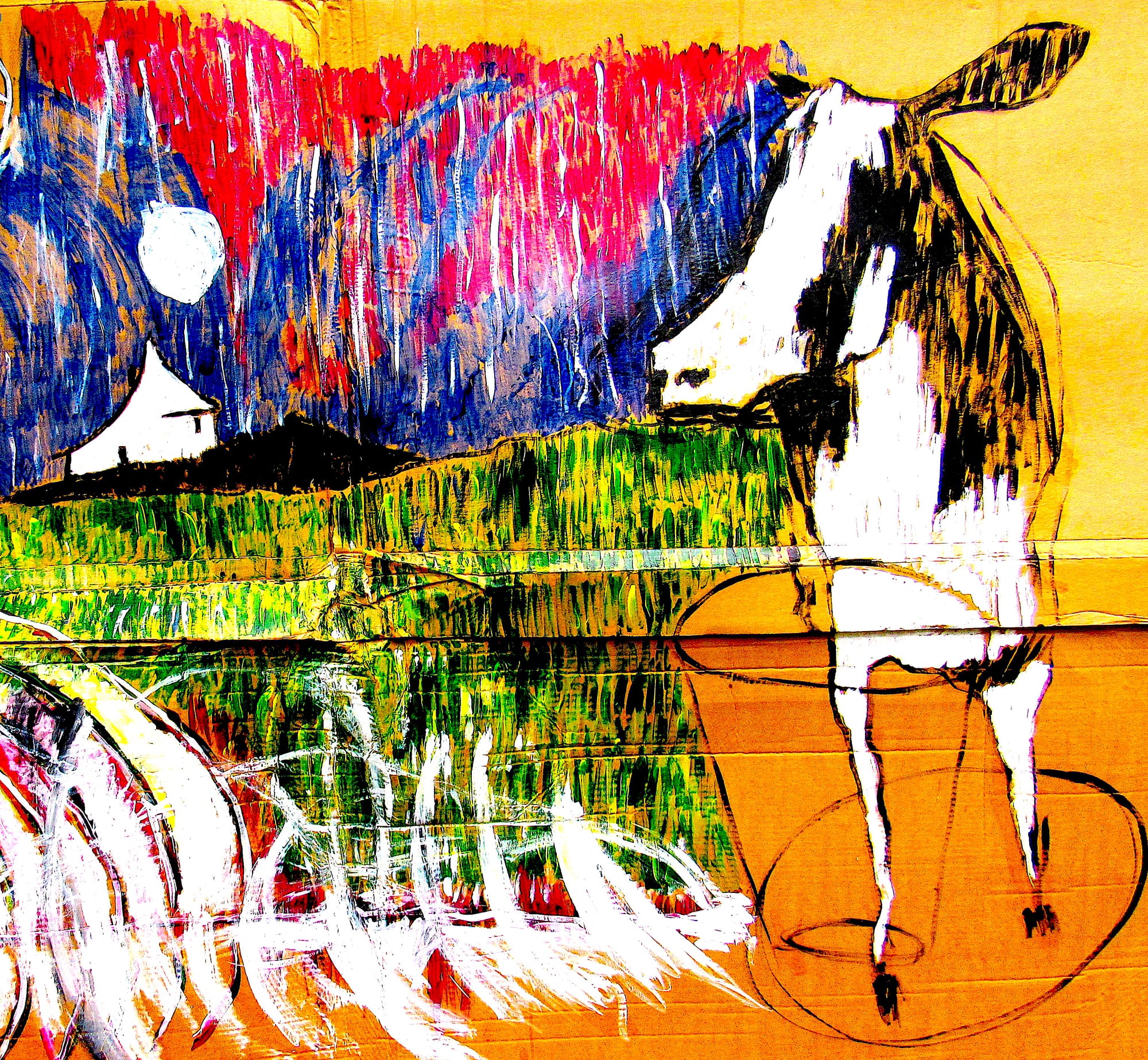
Interview by Richard Marshall
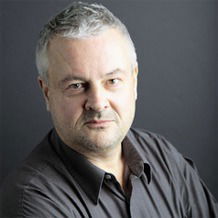
'The first way I often explain naturalism is as “anti-supernaturalism”—a refusal to countenance the existence of immaterial souls, deities, ghosts and suchlike. Of course what actually counts as supernatural isn’t always obvious.'
'I would question the assumption that philosophy cannot advance science. Of course I do not hope to do so in the way I might if I had a laboratory and a lot of fancy microscopes. I’m most unlikely to add any significant new observations or phenomena to the corpus of biology. But science, as I see it, involves a constant interplay between particular scientific findings and a bigger general picture of what is going on.'
'All these visions share the idea that somehow the properties of the organism, the phenotype, are fully determined by the genome ... in their more careful moment most biologists know that this is quite wrong. Epigenetics begins to take apart the increasingly untenable traditional view.'
'In my view, life is a process. It is still common, both in the philosophy of biology and in general metaphysics, to take an organism to be a kind of thing, or substance. But this is problematic for several reasons.'
'Neo-Darwinists have generally considered that natural selection can explain just about anything (think of Daniel Dennett’s notorious and bizarre metaphor for natural selection as a universal acid). It is thus a bit ironic that Darwin, as anyone will know who has read The Origin, was a committed pluralist.'
'One of the most regrettable consequences of the neo-Darwinian exaggeration of the importance of natural selection is that it has fostered the thought that cooperation is something improbable and strange.'
'The extent to which Lamarckism remains a profound taboo in mainstream evolutionary circles is a fascinating indication of how dogmatically entrenched neo-Darwinism has become, but also, perhaps, of its justified insecurity.'
'Scientific relativism is generally taken to mean that in the end science isn’t really true, which does indeed sound like a problem. But if I say, this is the way to classify organisms if you are interested in evolution, but this is the way to do so relative to ecology, no such consequence threatens. The first classification aims to say true things about evolution, the second true things about ecology.'
'From a process perspective I am inclined to say that we are asking the wrong initial question. Rather than asking why we get cancer, what we really need to understand is why, almost miraculously, we frequently don’t suffer from cancer.'
'This topic has become very difficult lately as a result of the shockingly heated debates over transgender, and it is difficult to take a position that won’t outrage one side or, as I sometimes fear with my own views, both. But I do think a process view has something to offer both and, in my fantasy world at least, a glimmer of a reconciliation.'
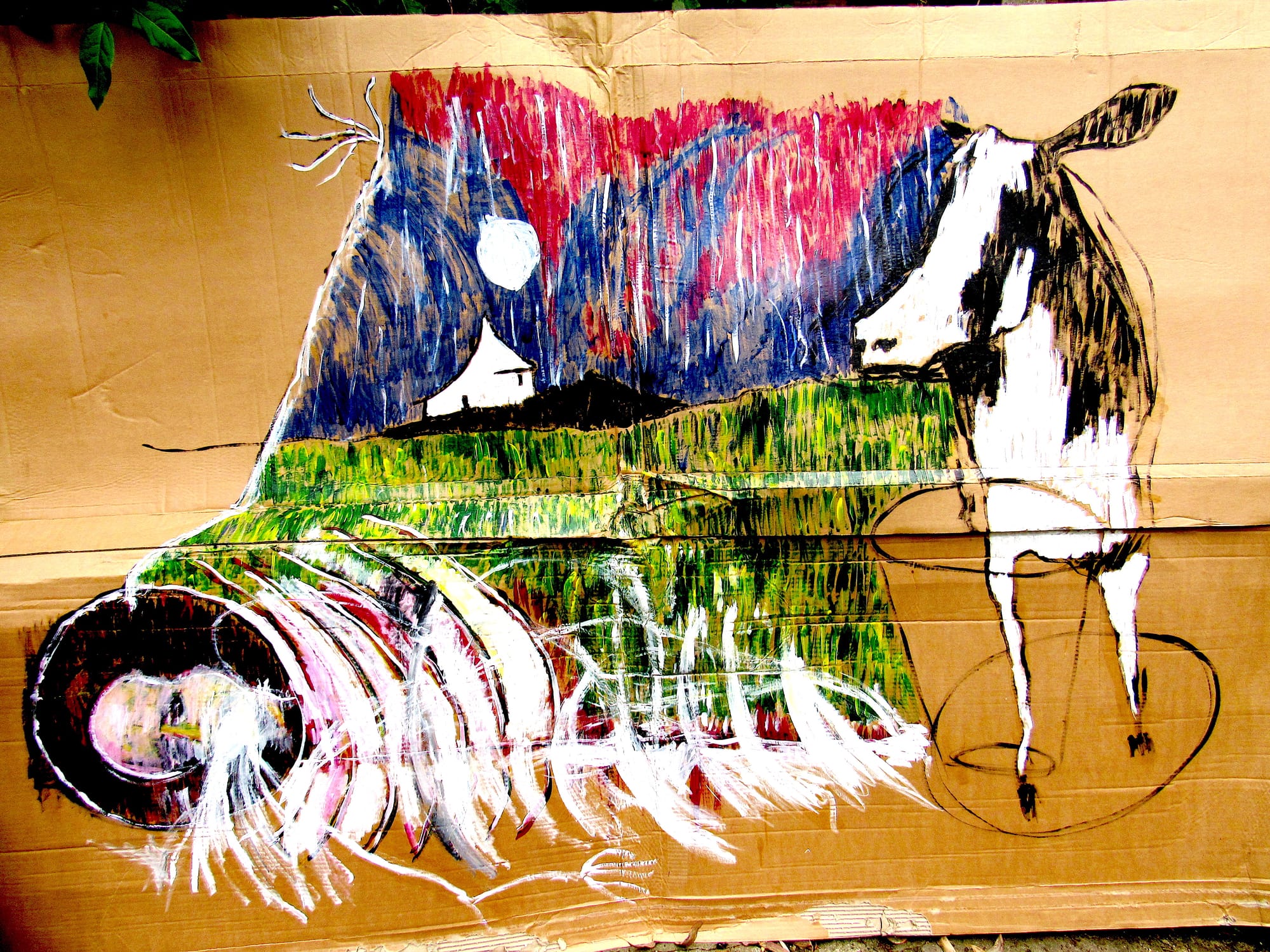
John Dupré is a philosopher of science, with a main focus on philosophy of biology. Here he discusses what he thinks naturalism is, the role of the philosopher of science, DST, epigenetics and genetics, microbes, process ontology, nets and trees of life, evolution, cooperation, Lamarckianism, pluralism, ants and bees, reductionism, downward causation, freewill and issues of gender and sex.
3:16: What made you become a philosopher?
John Dupré: I think it was something like a random walk through attractive possible life plans. I was fortunate enough to have a teacher at school who offered a once weekly philosophy class, and this moved me from my assumption that I would do some kind of science degree at university towards a decision to study physics and philosophy as an undergraduate at Oxford. There I quickly found that physics was another name for maths, and that I was more adept with words than numbers. So I switched to PPE. Unfortunately I then discovered that politics was mostly historical facts and economics was yet another name for rather less interesting maths, with even fewer plausible connections with reality. Though I did enjoy some of the philosophy, my overall decision was to drop out of university and go to music college. That was great fun, but during my second year I started reading a lot of philosophy again, and also realized that I was not going to be one of the handful of people on the planet talented enough to make a living playing the viola da gamba; so I managed to persuade my Oxford college to let me return for my final year. Since then it has never seriously occurred to me to do anything else. I was, of course, very fortunate to have grown up in a more optimistic political andeconomic environment that provided some of its youth with the opportunity to explore options in this way; a kind of opportunity that is rarely offered to young people now in this much grimmer “austerity” phase of capitalism.
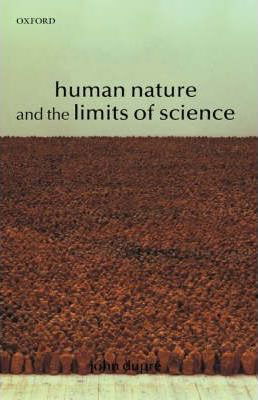
3:16: You’re interested in philosophical issues about biology and science. You call yourself a philosophical naturalist – and as you know ‘naturalism’ comes in all sorts of varieties – so, to try and avoid misunderstanding, what do you take naturalism to be?
JD: The first way I often explain naturalism is as “anti-supernaturalism”—a refusal to countenance the existence of immaterial souls, deities, ghosts and suchlike. Of course what actually counts as supernatural isn’t always obvious. Are minds supernatural? Yes, if you think they are a kind of thing; but most philosophers, I take it, use the word “mind” to refer to kinds of activity or process. Putative supernatural entities are not kinds of things that have been shown by science not to exist (or anyhow have not been shown to exist), but are phenomena in principle incapable of empirical investigation. That is how I understand their immateriality. If they can’t make any empirical difference I see no reason to believe they exist.
More controversially, at least among philosophers, I mean by “naturalism” the view that there are lots of questions that belong to metaphysics and epistemology that can’t be answered without appealing to contingent, empirical facts about the world, some of which may require science for their elucidation. If you think biological kinds have essences, for example, there are, I believe, implications for how the world will look. As it happens, it doesn’t look like that. So with this, and many other issues, I disagree with those philosophers who believe that such questions can be answered a priori, and that the answers they give are, if true, necessary. I suppose this is empiricism, with just the additional gloss that often the best way to find out how the world is, empirically, is often to consult our best science.
Those who know my earlier work may be a little puzzled as to the role of science in all this, as I spent a lot of time criticizing scientism, the assumption that all questions about the nature of reality should be answered by science. There are tricky issues here about the extension of the word “science”: is it just an honorific, or is there some specific method or set of methods that it involves? At any rate, I think there are many practices not included in the scope of science that can tell us about the world—including even philosophy and the other humanities; and that there are many practices generally counted as scientific that tell us little or nothing. This is just to say that the empirical and the scientific are not at all the same unless we choose to make them so by definition. So empiricism, to which I confess, is not the same as scientism. And then, of course, there are normative domains, from politics to aesthetics, about which I’ll say very little except that I don’t think they can be reduced to empirical science.
3:16: As a philosopher you’re not about advancing the science of biology – so what is the role of the philosopher here?
JD: I would question the assumption that philosophy cannot advance science. Of course I do not hope to do so in the way I might if I had a laboratory and a lot of fancy microscopes. I’m most unlikely to add any significant new observations or phenomena to the corpus of biology. But science, as I see it, involves a constant interplay between particular scientific findings and a bigger general picture of what is going on. This is something like what Imre Lakatos, for example, referred to as the hard core of a research programme. Many scientists have little inclination or perhaps even expertise for thinking about any such bigger picture. Whether or not they know it, much of their work only makes sense given such a picture, and central elements of the picture I take to be ultimately metaphysical.
To take a well-trodden example fairly close to the empirical coalface, if you think evolution is nothing but changes in gene frequency, and that all selection is selection of genes, there is a fine structure to selective processes that you won’t see. If a perceived selective process is a resultant of selection at multiple levels, genes, organisms, and groups, say, the proportions of these effects will make a difference to what you should expect when circumstances change. Empirically, within the context of these gene-centred assumptions, all we have is an inexplicable phenomenon. The inexplicability comes about from a mistaken core assumption, one that was famously, plausibly, but erroneously defended by Richard Dawkins from his 1976 book onwards. The necessary philosophical work was done by a number of philosophers, most notably Elliott Sober, and by theoretical biologists such as Richard Lewontin.
Advancing a science can involve negative work, what one might call intellectual hygiene. I and several other philosophers have spent a good deal of time trying to explain what is so deeply misguided about the project of Evolutionary Psychology, the attempt to explain large amounts of contemporary human behaviour by appeal to the conditions of human life in the Pleistocene. I can’t say we have been very successful; but if we did succeed in persuading scientists to abandon this hopeless and potentially damaging project we would, I think, have made a significant contribution to the advancement of science. And finally my most recent work, arguing for the necessity of a process ontology on biology has, I believe, fundamental implications for how living systems should be thought of across all temporal and spatial scales. This is unquestionably a metaphysical thesis.
To quote the often maligned and neglected twentieth century philosopher of biology J. H. Woodger, “physiologists who suppose themselves to be above metaphysics are only a very little above it – being up to the neck in it’’. (I’m grateful to my former student and colleague Dan Nicholson for making me aware of the value of Woodger’s work, and for this quote.)
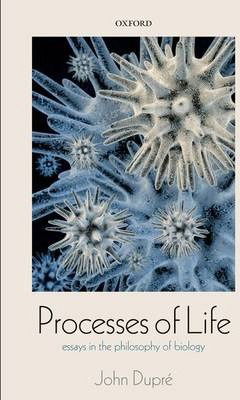
3:16: Genetics we’ve all heard of and thought that they explained everything about life and us but you’ve written about the role of DST and Epigenetics and the role of genetics seems to have changed. The genome is no longer to be thought of as a recipe for building life. Is that right? Are we now to rethink our understanding of the gene? So what’s is DST and epigenetics and why are they so important?
JD: It's not entirely easy to decide which biologists believed what is so widely taken to be the standard view of genetics, or when. But certainly the idea of the genome as a recipe, or a blueprint, or a map of the phenotype is widely believed, and often asserted by prominent scientists, at least in their less guarded moments. There are distinctions within this picture. A recipe doesn’t imply a mapping of recipe parts onto final dish parts. There is no part of the cake that corresponds specifically to the butter, whereas parts of a blueprint map precisely onto parts of a building. But all these visions share the idea that somehow the properties of the organism, the phenotype, are fully determined by the genome.
At any rate, in their more careful moment most biologists know that this is quite wrong. Epigenetics begins to take apart the increasingly untenable traditional view. Epigenetics is the study of the molecular features of the cell that affect the expression of genes in the nuclear genome. Many of these are actually chemical modifications of the genome itself, for example methylation, the attachment of a methyl group to cytosine, one of the four bases that make up the famous genetic code, or modifications of the histone molecules that make up the protein core on which the DNA chain is wound. Epigenetics may also include small RNAs that can block expression of genes after transcription. It used to be said that these epigenetic effects were ultimately all consequences of nuclear gene expression, for example of the genes that code for the small RNAs. But it is now clear that epigenetic changes such as methylation can be inherited for many generations, and small RNAs can be transmitted in the ovular cytoplasm, so this response is no longer tenable.
Epigenetics has excited particular interest because epigenetic changes to the genome can be induced by the environment at levels from the cellular to the social. This raises the exciting prospect, or the ultimate taboo for traditional evolutionists, of inheritance of adaptive acquired characteristics. But while the possibility of inheritance of acquired characteristics is certainly raised, provided only that the same epigenetic effects are environmentally induced and heritable, there is as yet no generally well-established process for making such changes adaptive.
The basic point of Developmental Systems Theory (DST) is very well-established however. This is just that many environmental resources and factors are required for the proper development of an organism. Here again “environment” should be understood in the broadest possible way, ranging from epigenetic factors to ecological conditions. Where DST makes a more controversial, though very interesting claim, is with the suggestion that there is nothing special about genetic causes of organismic development. Philosophically there are compelling arguments for this claim, but it is not easy to persuade biologists, for whom genetics has provided such remarkable methods for exploring living phenomena, that there is nonetheless nothing philosophically special about genes.
DST fits very neatly with another idea that has been widely discussed recently, niche construction. All organisms effect their external environments to some extent, and in many or most cases this includes shaping it in ways that are conducive to their survival or the development of their offspring. Hence beavers build dams, and humans build schools and hospitals. Or, as Darwin explored in detail, earthworms maintain a moist soil environment. Niche construction exemplifies the many ways beyond just the provision of genetic material that organisms contribute to the development of subsequent generations.
3:16: Microbes are also part of the fuller picture too aren’t they? Can you say why neglecting them distorts our thinking about biology? Are bacteria the most important life form on earth, and are we essentially a bacteria-based life form? Have we come to the end of thinking in terms of biological individuals? Is metagenomics the new girl on the block that we need to think about both as biologists and philosophers if we are to understand what’s going on?
JD: I’m not sure what it would be to be the most important life form, but microbes are certainly by far the most prevalent. And whereas microbes could get on perfectly well if there were no macrobes (multi-cellular organisms), the reverse is certainly not the case. The simple answer to the question of what harm it does to ignore them is just that we are ignoring a large proportion of what is going on. I think philosophers views on topics such as the nature of species were, until quite recently, disastrously zoocentric, grounded mainly on consideration of large charismatic animals. But perhaps a more interesting point is that microbes show us how interconnected living systems are. Microbes themselves more often than not find themselves in more or less cooperative multi-species communities, such as biofilms.
And all or almost all macrobes require microbial symbionts. Tree roots contain fungal symbionts, the mycelia of which stretch far into the surrounding soil, where in cooperation with communities of bacteria they facilitate an exchange of nutrients. It even appears that the mycelia may connect many plants, even of different species, allowing these to exchange nutrients. Among the microbial cells that make up more than half the cells in the human body, many are serving essential functions, many are probably more or less passengers, and others again are inclined to do you harm. Maureen O’Malley and I have suggested that we use the word “collaboration” for the relation between closely interconnected organisms, to avoid the impossible task of sorting them into friends and foe.
I don’t think this should put an end to thinking of biological individuals, but I think it should radically transform that concept. We could not do biology at all without distinguishing individuals, but the interconnectedness of living systems is such that there is no unique way of defining the relevant individuals. I like to call my view here “promiscuous individualism”, by analogy with the promiscuous realism I proposed decades ago for thinking about natural kinds. In the latter case there are many different ways that we can divide an array of entities into kinds, the decision which is most appropriate depending on the purposes of our classifying. Similarly with dividing an array of biological material into individuals. The point in both cases is not that there are no distinctions, but that there are far too many, so that we have to choose which best suit our purposes. To take a very simple example, does the human body stop at the boundary of the skin cells, or does it include the many microbes that live on the skin surface? For evolutionary theory, say, the transitory nature of this residence almost certainly makes it better to exclude them. But for immunology, it would be impossible to understand the monitoring of the interface between organism and environment without attending to these fellow travellers.
One last point on microbes. I have said nothing so far about viruses. But these are by far the commonest biological entities on the planet, and almost certainly fundamentally important to many of the larger systems in which they reside. For example, the populations of bacteria in our guts are modulated by phages, viruses that live on bacteria. More interesting still is the fact that viruses are vehicles for DNA, transporting it in a massive flux through and between organisms. It is still sometimes supposed that the only evolutionarily significant flow of DNA is from parents to offspring. This idea was dealt a fatal blow by the discovery of lateral transfer of genes in bacteria. But reflection on the omnipresence and capacities of viruses make it fairly clear that the demise of this dogma extends beyond the microbial. I suspect that interest in viruses will very soon go through a similar trajectory to that of cellular microbes, with a growing recognition of their importance to all larger biological systems.
3:16: Given this, can you give a general account of what counts as a living entity or has the idea of a living entity become less than useful given this interconnectedness, especially in the bacterial world?
JD: This is the point where I shall have to introduce the main topic of my last ten years or so of philosophical work, process ontology. I didn’t, of course, invent process ontology, but it has not been a major strand in philosophy of biology since the Cambridge Theoretical Biology Club in the 1930s were strongly influenced by Whitehead. In my view, life is a process. It is still common, both in the philosophy of biology and in general metaphysics, to take an organism to be a kind of thing, or substance. But this is problematic for several reasons.
First, as is widely understood, an organism, or any other living system, is far from thermal equilibrium. It maintains it stability by constantly drawing and using energy from the environment. But traditional notions of a substance are of an entity not dependent on anything else for its existence, and of an entity the default state of which is unchanging persistence. An organism that doesn’t undergo change, on the other hand, is dead. Second, organisms have life cycles, and the different stages of a life cycle have little in common beyond their causal continuity. Accounts of the persistence or continuity of a substance are generally taken to require some property sufficient to constitute this persistence. But it is impossible to see what this property could be common to egg, caterpillar, pupa, and butterfly, say. No doubt many people still imagine that something like genome sequence might serve this purpose, but apart from some very familiar questions about whether one is the same organism as one’s identical twin, this continues to perpetuate mythical views of the genome, in this case of its homogeneity and stability. And finally, recalling the idea that substances are supposed to be independent of anything else for their existence, the points I just made about symbiosis present fatal problems for the traditional metaphysics.
Following up on the final point, the position I referred to as promiscuous individualism makes little sense in the context of a substance ontology. However if we think, following Nicholas Rescher, that “enduring things are never more than patterns of stability in a sea of process”, there is no such problem. Life is an almost inconceivably complex such pattern and many smaller patterns can be distinguished from the whole. The question which we need to ask at all levels of biology is how that pattern is maintained, and it turns out that for any bit of the pattern we pick out, the answer involves both interactions between components of that part and interactions with the wider context in which it is embedded. It is quite unsurprising, in light of such a view, that there should be no uniquely privileged way of dividing the whole pattern into such parts.
3:16: Referring back to your remarks about lateral gene transfer and viruses does this mean that ideas such as the Tree of Life and of species are redundant in serious biological science? Might the picture of a net be better than a tree?
JD: I think it is clear that given the importance of lateral transfer of genes, a net is a more realistic picture than a tree. For microbial life it really seems that the tree can be highly misleading. Microbial trees are tracked by selecting particular genes and looking at how they differ between organisms as a measure of how long they have been evolving separately. But what tree you get varies greatly according to which genes you look at; microbes can have many different genetic ancestors. Classifications of bacteria are quite unlike those of higher organisms. One of the most familiar bacterial “species”,Escherichia coli, is so genetically diverse that no more than 20% of the genome of a strain need be shared with all other strains. This degree of diversity would group all plants, animals and fungi in the same species (subject to a warning that such comparisons don’t really make much sense…).
Matters are much more complex with eukaryotes, especially multicellular eukaryotes, animals, plants and many fungi. In these organisms lineages begin to develop some integrity, especially when they become sexual. For the case of multicellular animals, the tree is fairly sharply defined, somewhat less so for plants and fungi. It is, however, important to recognise that it is seldom perfectly sharp. Hybridisation is far more common than was once supposed, and the process of separation between lineages may often be long and slow. Gene transfer, mediated by viruses or other genetic parasites, may remain relatively common. But we still have a tree, if with some fuzzy bits, the occasional remerging of distinct branches, and the odd little twig linking perhaps quite distant parts.
That such a tree can still be clearly discerned is important when it comes to the question of species which, I think, remain an essential concept provided they are properly understood. Most taxonomists still want to understand species as terminal sections of the phylogenetic tree, and a little fuzziness of the tree doesn’t provide a significant obstacle to this project. I would say there is very little problem for such a taxonomy for higher animals, but little or no prospect for applying it to bacteria. In between, with plants, fungi and protists (single-celled eukaryotes) matters are less clear.
As I and others have argued for years, phylogenetic taxonomy is everywhere only one of a range of possible ways of classifying organisms. Morphology and ecological role are others that have concerned biologists, but still further classifications may be warranted by less scientific interests such as herbal medicine or forest management. But even within biology, it is important to keep apart two distinct interests in taxonomy, evolution and classification. It is strangely common (and no doubt Darwin and the title of his most famous book have something to do with this) to consider taxonomy to be nothing but an attempt to map evolutionary history. The impossibility of doing this for microbes has yet to dispose fully of this still common assumption. At any rate, in substantial parts of biology it is still possible to treat species as units of evolution and where this is possible it remains a legitimate practice, if perhaps one somewhat likely to mislead more generally.
But what seems to me indisputable is, however evolutionary theory goes, that we need a classification. Classification of the vast diversity of biological material is essential for conveying and storing the enormous quantities of data that constitute the natural history of life on our planet. And here, while there remain many possible ways of classifying, we should select one to optimise this communicative function. Of course, we do not need to select the same classificatory criteria for all parts of the biological world, and in fact it would be a mistake to try to do so. Mammals and bacteria exhibit very different patterns of diversity. But the obsession of theoretical biologists and philosophers with evolution has sometimes led them to forget that taxonomy has countless indispensable functions beyond that of trying to sort out the details of evolutionary history. The most crucial role of the species concept is as the lowest universal level of a purely taxonomic hierarchy.
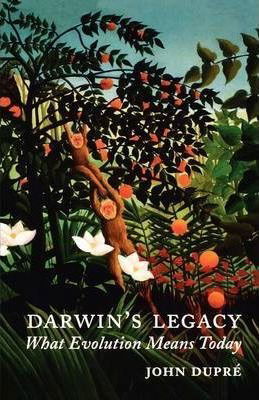
3:16: And doesn’t that in turn make evolutionary thinking and evolutionary relations between kinds of organism also redundant? How can Darwin be important in this new biological scenario?
JD: As I just remarked, philosophers have tended to be rather obsessed with evolution, but I certainly don’t want to argue that it is no longer interesting, or that evolutionary relations no longer matter. We do, after all, still have a strong and legitimate interest in where we and the rest of life on Earth came from! In the last few decades evolutionary theory has become a lot more diverse and interested in a much wider variety of processes than was the case a couple of decades ago when the dynamics of population genetics under natural selection was considered pretty much the whole story. But that is just to say that evolutionary theory has got vastly more interesting,
Darwin has a curious role in this history. The boring view of evolution I just mentioned is often referred to as neo-Darwinism, reflecting the fact that Darwin’s overwhelmingly most important contribution is generally taken to be his insistence on the importance of natural selection. Neo-Darwinists have generally considered that natural selection can explain just about anything (think of Daniel Dennett’s notorious and bizarre metaphor for natural selection as a universal acid). It is thus a bit ironic that Darwin, as anyone will know who has read The Origin, was a committed pluralist. Though of course appropriately enthusiastic about natural selection, increasingly in later editions he acknowledged the likelihood that other causes must be invoked. Though I have sometimes complained about the way that Darwin, like God in war, is invariably enlisted on both sides of any evolutionary controversy, I cannot resist doing the same in this case.
I do have a much more eccentric view on the current significance of Darwin’s famous idea. Picking up again on the quote above from Rescher, if what we thought were things are really temporarily stabilised processes, we need to ask what stabilises them. I actually think that the most important methodological implication of a process ontology is that we should focus less exclusively on why things change, and pay much more attention to why processes sometimes stay the same. Of course, evolution may be construed as simply being the topic of change during the history of life. But if we are interested in understanding the history of life we also need to understand how lineages have persisted for millions of years, and it is this question, I suggest, to which natural selection—indeed Darwin—has provided such a compelling answer.
Neo-Darwinists, and here I think particularly of the extraordinary popularisation of an extreme version of the theory by Richard Dawkins, often write as if natural selection was a creative force capable of generating adaptive change. But of course it is nothing of the kind. Natural selection can only select what is somehow provided for it to select. Dawkins proposes that the power of small genetic mutations to produce any arbitrary phenotypic change in any arbitrary direction allows natural selection to shape any phenotype into an optimal form. Pace Leibniz, staying alive is hard enough without having to be the best possible! But this magical power of genes is just asserted, and the nearest to an argument for it is Dawkins’ inability to think of any other source of the more strikingly adaptive evolutionary changes. Others have been more imaginative. Epigenetic change, adaptive plasticity, major rearrangement of regulatory genes, lateral gene transfer, symbiosis or symbiogenesis, and cultural evolution (which, to be fair, has been discussed by Dawkins) are all ways in which selectable change has been show to appear within lineages. Pluralism is the only sensible attitude to the origins of evolutionary novelty.
3:16: And does this new position mean we should emphasize the role of cooperation as much as the traditional competition in explaining how organisms develop?
JD: Absolutely. One of the most regrettable consequences of the neo-Darwinian exaggeration of the importance of natural selection is that it has fostered the thought that cooperation is something improbable and strange. Hence we have had the so-called “problem of altruism”—how could an organism have evolved with any tendency to be nice to others? And of course this has had very damaging consequences in furthering the idea that it was naïve to expect humans to be anything but nasty and self-interested.
But as an empiricist I am much more impressed by the observation that cooperation is everywhere. I have already noted the omnipresence of symbiosis, or cooperation between members of different species. Biologists are less theoretically impressed by this than by cooperation between members of the same species, since it is the latter with whom organisms are supposed to be in direct competition. But there again, cooperation is not hard to find. Think of the extraordinary complementary articulation of social roles among the social insects. (And if you are tempted by the highly dubious argument that this is due to the fact that the Hymenoptera have somewhat anomalous degrees of relatedness, think of the termites.) Or think of any of many species of more or less social mammals. If you are tempted to think of this as something only possible for organisms with sophisticated behavioural capacities, think of slime molds, single celled creatures that come together to form fruiting bodies only a small minority of the contributors to which can form reproductive spores.
I won’t try to answer the vast question of whether we humans are nice or nasty. I suppose I’m inclined to the obvious view that some of us are very nice, some are pretty nasty, and most of us are somewhere in between. The only point that I want to insist on is that this is again an empirical question, not one to be settled by simplistic appeals to a crude version of evolutionary theory.
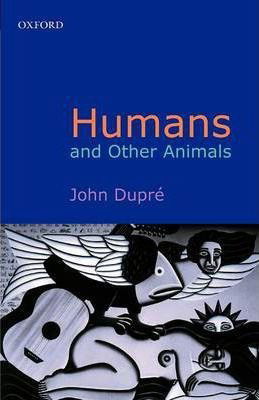
3:16: And does your view give a green light to Lamarckian processes?
JD: I assume that by “Lamarckian” you mean the inheritance of adaptive acquired characteristics (as most people now do) rather than anything very closely related to the doctrines of Jean-Baptiste Pierre Antoine de Monet, chevalier de Lamarck. In which case again, absolutely. We know this happens in species that have cultural inheritance (obviously including our own!) in many cases of which the spread of demonstrably adaptive innovations and their transmission to future generations has been observed. An interesting special case is when behavioural changes provide adaptive improvements to the construction of the niche. As I already mentioned, there is debate as to whether epigenetic changes are induced adaptively by the environment, and to the extent they are whether these are among the epigenetic changes that are heritable. But this is certainly possible. And one further interesting possibility arises from developmental plasticity. All organisms develop in response to environmental causes as well as internal ones, and in many respects they develop adaptively in response to varying features of the environment. Such adaptive responses are not immediately heritable, but it has been proposed for a long time that if the environment induces such changes, over a period of time the changes may become embedded in the developmental system so as eventually no longer to need the environmental signal, a process sometimes called genetic assimilation. This would be another broadly Lamarckian process.
The extent to which Lamarckism remains a profound taboo in mainstream evolutionary circles is a fascinating indication of how dogmatically entrenched neo-Darwinism has become, but also, perhaps, of its justified insecurity,
3:16: You’re a pluralist – what is this for you and what are your reasons for not being a monist and although ontologically pluralist you say that epistemically empiricism is the one overarching virtue? So are you a metaphysical/ontological pluralist (but no supernaturalism) and epistemically a monist? And if things are not unified then why don’t you think everything is disconnected?
JD: Yes, I’m definitely a pluralist. I’ve mentioned one root of this, which goes back to my earliest work in philosophy, the idea that classification is not determined by objective essences, but is suited in specific and various ways to different purposes. I think there are many reasons for holding such a view. One is that it has been clear to biologists and biologically informed philosophers for many years that there was no place for such essences in biology; the fact of evolution is often taken to be sufficient to show this. But a more interesting point is that scientific concepts are always abstractions from the mess and complexity of the real world. Different abstractions will serve different ends. This simple point has been obscured for almost the last half century by the great influence of direct realist theories of meaning, specifically Hilary Putnam’s idea that one could just point to an object and thereby successfully ostend the natural kind to which that object belonged. This ostensive act would be neutral with respect to details such as the objectives of enquiry. The trouble, of course, is that this whole story just assumes the essence-defined natural kinds, and thus fails entirely to cohere with the empirical facts of biology.
I think that one factor that has made this much easier for philosophers of biology to take on board has been the gradual waning of a view of science, or anyhow the life sciences, as composed of universal laws and its replacement by a focus on models. Once one sees science as constructing models rather than discovering laws it is hard not to be a pluralist. Where I am perhaps a more eccentric pluralist is in being a realist. I think many of our models work, when they do, because the categories they distinguish correspond closely enough to real kinds in the world. Hence I am indeed an ontological pluralist. Your questions here remind me of something David Hull wrote in a review of my book The Disorder of Things:
“Dupré is strongly predisposed to pluralism in science but is extremely monistic when it comes to philosophy. He insists that in science several different, equally legitimate perspectives can and should exist, but in philosophy one and only one perspective is acceptable—pluralism.”
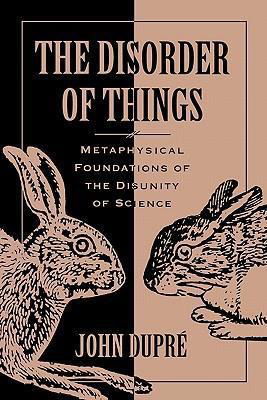
David preferred to be a bit less pluralistic about science and a bit less monistic about philosophy. I’m not sure I accept that accusation with regard to pluralism. I still believe what I wrote in that book, that there are various epistemic virtues, even though I might insist that accordance with empirical fact is the cardinal one. Pluralism I see as a consequence of the empiricism rather than a primary perspective. But I have recently encountered just the same complaint from philosophers who find it surprising that I should be a monist about processes, rather than a pluralist, happily embracing both processes and things.
One can see a very unproductive dialectic starting here. Is a pluralist about first order kinds but a monist about higher level ontological categories a metaphysical pluralist or a meta-metaphysical monist? At any rate, I shall offer what I find a more interesting reflection on this set of views. When I first defended ontological pluralism I took it as just a brute, ultimately empirical fact about the world. But coming to see the world as composed of everchanging process rather than just rearrangements of a fixed repertoire of things makes this first level pluralism inevitable. Evolution convinced many philosophers of biology that biological kinds could not be eternal natural kinds. But in a world of process evolution is not, in this respect, an anomaly, but a paradigm. So the “monism” of process fits perfectly with the empirical pluralism.
You ask, finally, whether my view of disunity leads me to see everything as disconnected. As I hope I have now made clear, quite the contrary. The process view of life, at least, derives from the fact that everything is more or less connected, ecologically or symbiotically. The unity of science is a picture based on clear and unambiguous lines between things. The actual connectedness of things makes the lines that science draws always to some extent optional.
3:16: The ant and the bee serve as pictures of scientific activity in that they are social and for you so is science. Your view of social isn’t just that it relies on cooperation and so forth but also that it embeds socially embedded beliefs, assumptions and values. Can you say something about this and does this mean that there are certain values, beliefs and assumptions that can’t be used by science and others that can’t. Or are all and any such values be used by science so we might have a very different science if we had different societies? Isn’t relativism a threat here?
JD: I’ve said that the kind of science we do reflects the goals we want it to serve, and these goals may be either theoretical or practical. What we want to know and what we want to achieve both depend in obvious ways on social beliefs and values, and thus it would be surprising if it were possible to prevent these from being to some extent embedded in the science that attempts to address these goals. To take an extreme example, the sorry history of racialist science could not have occurred if there had not been a social context in which a hierarchy of kinds of people seemed obvious, and the white European men who did most of the science thought it obvious that they were positioned at the top of the hierarchy. I called this example “extreme”, but what makes it useful is that most of us can recognise the false and obnoxious nature of the underpinning assumptions and can see the misguided nature of the scientific project. But presumably it is much harder to see such underpinning assumptions or values when we mostly see them as obviously correct or appropriate.
There is another reason why we could not hope to free our science from normative assumptions. This is that much of our language is inextricably impregnated with values. This is the problem of so-called thick description. Where we care about a range of phenomena we describe them in ways that embody our judgements. Think, for instance, of how we describe rooms as spacious or cavernous, cramped or cosy. All these words have both evaluative and descriptive aspects. And we cannot adequately describe a room without both aspects. A room may be small, but does that make it cramped or cosy? Now suppose we are interested in the psychological response of people to rooms. We want to know what makes a room feel cramped, not just what makes it feel small. It might be—though I doubt it—that there is some universal fact about people that makes rooms with certain features feel cramped. But even if this were so, it would still remain true that the descriptions we want our science to generate and help us to explain or understand, are descriptions in thick language, language permeated with our values. It would just be that, implausibly in my view, the values had proved to be reducible to psychology. I did say only that this was true of phenomena we care about. I don’t think most of us have any non-epistemic interest in quantum chromodynamics, and I’m happy to believe that its findings are value-free.
Everything is relative, people sometimes like to say, and in some sense no doubt that is true. Why does it matter? Scientific relativism is generally taken to mean that in the end science isn’t really true, which does indeed sound like a problem. But if I say, this is the way to classify organisms if you are interested in evolution, but this is the way to do so relative to ecology, no such consequence threatens. The first classification aims to say true things about evolution, the second true things about ecology. Carnivores have sharp teeth might be true, but there is no comparable sized evolutionary grouping, or “clade”, that shares a property of this kind. Even the grouping Carnivora, an evolutionary clade, contains members that do not share the typical carnivorous morphology. The giant panda, which is largely herbivorous, has large molars and powerful jaw muscles for crushing bamboo. The panda is a member of the order Carnivora, but not a carnivore. Both of these terms are apt for making true statements, but on different subject matters.
The crucial point is one I have mentioned already. The reason there are many ways of talking scientifically about the world is not that there is no good way of dividing things up, but that there are many good ways. So a particular way of doing so is relative to a particular set of purposes, but it may be the right way of going about addressing those purposes, and it may enable us to say true things about the kinds it distinguishes.
3:16: What’s wrong with reductionism – and does your opposition lead to a position that involves emergence and downward causation?
JD: First I must distinguish reductionism as a modest methodological doctrine—it’s often a good idea to analyse a system into its parts and see how these behave and interact—from a universalizing doctrine, something like the view that ultimately everything should be explained in terms of the behavior and interactions of its parts until we reach nothing but fundamental entities that have no parts. There is so much wrong with reductionism in this strong sense that I can do no more than scratch the surface. I’ll say what I saw as the main problem when I first started criticizing reductionism, and then say what I think now.
My early criticisms of reductionism drew on the points I have just been making about classifications. So consider the classic kind of “layer-cake” reductionism that reduces biology to chemistry and chemistry to physics, no doubt with some stops in between. In my 1993 book I considered the move from physiology to ecology. Suppose that the classic model of the Canadian lynx-hare ecosystem were entirely true, and followed from universal behavioural dispositions of lynxes and of hares. And suppose the behavioural dispositions were somehow deducible from the physiology of the animals. Now of course this is unrealistic, and any serious reductionist will have some story to tell about the relation between this idealized story and the real world. My argument is that no such story can be told for the following simple reason. The abstraction that provides the general physiological model of the hare is a very different animal from the one that provides the ecologist’s behavioural model. They both map onto real world hares, but not in the same way. The physiologist’s hare may have grown up in a laboratory and wouldn’t know a lynx if it was six inches from its face. In general, if the abstractions needed by reductions are different from those generated by the lower level science, the grand reductive project will be blocked by the intransitivity of successive levels of reduction.
Nowadays I see the impossibility of reductionism rather more simply from a process ontological perspective. Laws of nature are conceived in relation to kinds of things, and universal characteristics or dispositions of those things that flow from their essential natures. But in a world of process there are no such things. There is no more than a particular set of structures that are more or less stable at this point no history and, as the facts of evolution make graphic, this set will not be the same in the future. Of course this is very closely related to my earlier criticism: the ecological hare and the physiological hare are different abstractions of relatively stable (or stabilised) features from the underlying hare process.
There are no doubt those who, for reasons that I must say entirely elude me, find it obvious that there must be universal and deterministic laws applying to whatever turn out to be the fundamental (smallest) entities of which the world is composed. If that is so, then they must govern the behavior of macroscopic entities, such as organisms, simply by virtue of governing the behavior of all their parts. In this case the findings of biology would not be reduced, but in some ultimate if perhaps inaccessible imaginary science they would be shown to be redundant, and indeed false, by the application of the fundamental physical laws. My only point here is that even if this strange fantasy appeals to you, it has nothing to do with scienceas practiced now or in any imaginably near future.
Finally, on the question of downward causation, as someone who finds reductionism totally implausible I have always struggled to see what could be the problem with this. Classic arguments, such as Jaegwon Kim’s, simply assume the picture described in the last paragraph that I take to be quite implausible. I also have a more positive reason for thinking downward causation is important and omnipresent.
As I have remarked, one of the implications of a process ontology is that we should pay a lot more attention to how what appear to be things are stabilized. And within biological systems it is immediately clear that such stabilization typically involves not only the interactions of parts, but the interaction with a wider system of which it is part. Think of a mid-level biological system, such as an organ. A heart, say, certainly maintains its stable functioning in part by virtue of the proper behavior and interaction of molecules, cells, and tissues. But it also depends entirely on being embedded in a suitable larger system. As we all know, our larger systems have to exercise themselves regularly to keep our hearts stable. And moment by moment the organism supplies the heart with oxygen and other nutrients. The heart and the organism in which it lives are both entirely dependent on one another for their stability each and every moment.
3:16: All this surely makes a difference for how we understand and approach medicine and disease. Can you sketch for us some of the things that are changed by taking your vision of biology into the practical world and does it offer a new paradigm that will lead to a new model of disease and therefore a new kind of solution?
JD: My endorsement of downward causation, suggests some ways in which my perspective on biology should bear on medical science. The shift of attention from the causes of change to the causes of stability has some profound implications on how we should think about health and illness. From a mechanistic point of view any disease looks like a consequence of a malfunctioning part, and we look for the part and try to fix it. Within this general approach, it is not surprising that surgery has often been a very effective approach. Whether at the scale of setting broken bones or the subtlest laser surgery to correct the shape of the eye, the defective part can be identified and fixed or replaced. A great deal of medical research is devoted to finding faulty parts, now especially faulty molecules.
One area where this doesn’t work so well is cancer. We have searched long and hard for faulty parts responsible for this class of disorders, and scientists have located them in genes, epigenetic modifications of genes, tissue organization, and the environment. All of these seem to have elements of truth, none of them seems to provide generally effective pathways to therapy. From a process perspective I am inclined to say that we are asking the wrong initial question. Rather than asking why we get cancer, what we really need to understand is why, almost miraculously, we frequently don’t suffer from cancer.
A human not only maintains a multitude of present properties, but also maintains the trajectory of the whole system through the stages characteristic of the human life style. Conrad Waddington, perhaps the most influential of the biologists influenced by Alfred North Whitehead’s process metaphysics in the twentieth century, distinguished homeostatic regulation from homeorhetic regulation, the stable following of a pathway. A ball rolling down a valley (as in Waddington’s famous diagrams) is homeorhetically constrained by the walls of the valley. In order properly to follow a life course, an organism must display an exquisitely regulated sequence of cell divisions, differentiations and terminations, both homeostatic and homeorhetic. How is this achieved? The answer is largely unknown, but it is safe to say that it will involve multiple levels of regulation and control. Cancer is a disorder of this stabilized regulation of cell division and differentiation. The various places where “the cause” of cancer have been sought are implicated to some degree in the regulation of this process. But it is very difficult to know whether the dysregulation, for example of gene expression in a cancer cell, is a cause or an effect of the breakdown of regulation. All this makes it unsurprising that there appear to be many different causes of cancer.
This may sound rather discouraging as opposed to the hope that we could find a defective part and a mechanical fix, and to some extent this is true. But I suppose it is best to have as clear an understanding as possible of the problems posed for medical science. And the refusal to assume that lower levels of organisation are more fundamental than higher ones does open up a wider view of medical science than is currently popular.
I remember once hearing that traditionally Chinese doctors were paid by their clients as long as they were healthy, but stopped paying when they became sick. I don’t know whether this is true, but it perfectly captures what I think should be the goals of process medicine: stabilizing health rather than fixing broken parts.
3:16: And what are the issues of connecting gender and sex coming out of this vision?
JD: My views on sex and gender have also evolved with my wider philosophical thinking. Back in the 1980s I wrote about sex and gender as paradigms of topics for which essentialist thinking had disastrous consequences. Essentialism certainly has no place in a process world, but I am now prepared to offer a rather more constructive story by way of the thought, unsurprisingly, that sex and gender should be seen as developmental processes. I think that this gives a much clearer view both of why sex and gender are both, to differing degrees, malleable and variable, but also why they are often very hard to change: biological processes are often strongly stabilised.
This topic has become very difficult lately as a result of the shockingly heated debates over transgender, and it is difficult to take a position that won’t outrage one side or, as I sometimes fear with my own views, both. But I do think a process view has something to offer both and, in my fantasy world at least, a glimmer of a reconciliation. I don’t doubt that biological sex is a real dichotomy between two broad kinds of human processes, though not a dichotomy with perfectly sharp boundaries. But processes, unlike things, don’t carry with them predetermined limits as to how much they can change, so there is nothing that tells us a priori that it is impossible for a person’s sex as well as their gender to change. Ultimately we just have very diverse biological processes, and distinctions we make about them for a multitude of purposes, good or bad. A process perspective thus helps us to be as clear as possible about how much of the debate is strictly political.
3:16: And broadening out from this – doesn’t your view mean that there’s no fixed human nature determined by genes – and what’s the link between the denial of genetic determinism and freewill – I think you argue that a radical rejection of determination does in fact make possible a robust thesis of human autonomy’ – so have we freewill?
JD: I’ve argued against genetically determined human nature for many years, and I’m still fully committed to the position. Developmental Systems Theory is quite general in its application, but it’s nowhere clearer than in its application to humans. Both human development and human evolution depend on many factors beyond genes, and these factors are all variable. Cultural evolution and niche construction are two factors with particularly strong evolutionary relevance to humans, because culture and the constructed niche play obviously crucial roles in human development. Genetic determinism in all its forms completely misunderstands the complex and interactive role of genes in the animal life cycle. The only fully deterministic genes are lethal ones.
As you suggest, my dissatisfaction with much of the free will debate is that it treats general determinism as an obvious premise, whereas I see it as a strange metaphysical relic of seventeenth century mechanism. Of course, it is widely recognised that denial of determinism doesn’t make free will straightforward. The idea that randomness could provide a kind of freedom that anyone would want is widely and reasonably ridiculed.
I sometimes call the view of free will I favour “compatibilist indeterminism”. The point is that libertarianism has come to be widely associated with some kind of exceptional deviation from the normal course of nature uniquely available to humans. This is a view that should surely be rejected. Seeing ourselves as somehow outside the normal course of nature seems bizarrely hubristic. But if one thinks that the normal course of nature is fully determined by laws governing the behaviour of quarks and the like, it is easy to see how this bizarre view could seem attractive. With the right kind of indeterministic metaphysics, however, human autonomy, free will even, doesn’t require this kind of exceptionalism.
My own view is that causation, far from being the universal determinant of everything that happens, is rare and hard won. We often model causation on machines, but in fact the regular and reliable behaviour of machines is not something that comes for free but is earned through years of ingenuity and hard work. (This will be obvious to anyone like myself who drove British cars in the 1970s.)
Organisms are actually much better in many ways at achieving regularity (stability) than machines, but they do it in a quite different way, by constantly interacting with their environment to sustain a complex structure far from thermodynamic equilibrium. Complex organisms, and most especially organisms like ourselves with complex behaviours, have invented all kinds of ways of interacting with the environment to maintain their stability and their trajectories through their environments. Humans, I like to say, are the densest concentrations of causal regularity we have encountered.
What does this mean? Suppose I promise to meet you for coffee next Sunday morning at 11.00. If I am a reliable person you may count on my being there even if we are currently in distant cities. Think how difficult it would be to construct a machine that would overcome all the unforeseeable obstacles that might be encountered in realising this plan. Humans do this kind of thing all the time, and this is most spectacularly exhibited in their ability to devote themselves to long term and complex plans. There is much more to be said here, of course, but my point is just that there is nothing here outside the normal course of nature. Non-human animals have some extraordinary capacities, too, though not the same ones. 100 billion densely interconnected brain cells properly linked to a complex structure of another almost 100 trillion cells, with a couple of decades of training can produce a system with some astonishing capacities. If we can get beyond our simplistic analogies with the relatively simple machines we make—whether clockwork, telephone exchanges, or silicon chips—we may eventually devise some better tools for understanding how such astonishing systems work.
3:16: And finally, are there five books you could recommend for the curious readers here at 3:16 that will take us further into your philosophical world?
JD: Could I have six?
3:16: Ok.
JD:
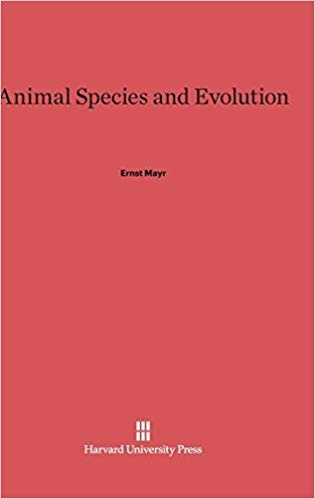
Ernst Mayr, Animal Species and Evolution
I somehow avoided any formal training in biology, but in my undergraduate days I attempted to address this by working through this vast and magisterial book. I might disagree with a good deal of it now, but there couldn’t have been a better entry into evolutionary biology.
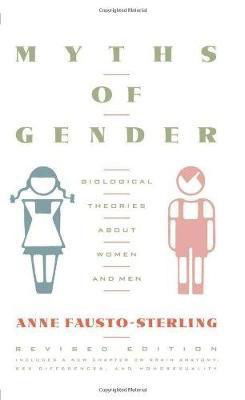
Anne Fausto-Sterling, Myths of Gender: Biological Theories about Women and Men. This book taught me an enormous amount about how far science can be shaped by social values and how the values and the science can then support one another. It also makes brilliantly clear how deeply science is permeated by assumptions about gender.
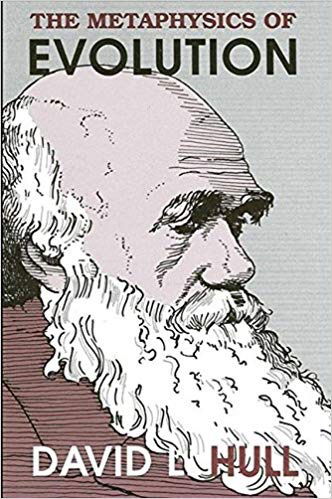
David Hull, The Metaphysics of Evolution
Despite some inevitable pushback on claims that Hull invented philosophy of biology in 1974, he was a vital inspiration to my generation of philosophers of biology. Here are some of his most influential essays. I also like the title as a rebuke to some of my colleagues who are sceptical of the possibility of doing metaphysics of science.
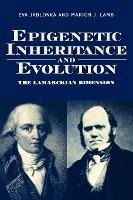
Eva Jablonka and Marion Lamb, Epigenetic Inheritance and Evolution: The Lamarckian Dimension. A representative of an extraordinary group of women—also Lynn Margulis, Barbara McClintock, Mary Jane West Eberhard—who have driven the major nails into the coffin of orthodox neo-Darwinism.
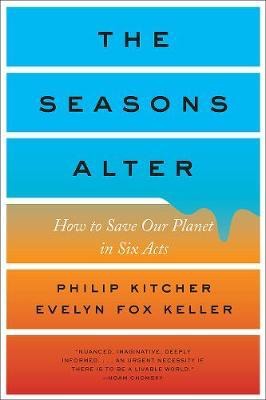
Philip Kitcher and Evelyn Fox Keller, The Seasons Alter: How to Save Our Planet in Six Acts.
I think philosophy of science has important things to say about issues that matter deeply to everyone. Here two of the very best philosophers of science make a potentially fundamental intervention in the most serious problem currently facing humankind.
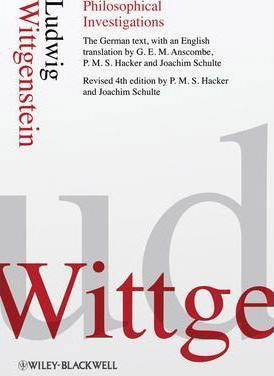
Ludwig Wittgenstein, Philosophical Investigations
An outlier, obviously, and perhaps not an influence everywhere obvious in my work. But this was nonetheless the book that shaped my conception of excellence in philosophy more than any other.

ABOUT THE INTERVIEWER
Richard Marshall is biding his time.
Buy his new book here or his first book here to keep him biding!
End Times Series: the index of interviewees